Discover Deep Transformation
Deep Transformation

Deep Transformation
Author: Roger Walsh and John Dupuy
Subscribed: 69Played: 3,056Subscribe
Share
© Copyright 2026 Roger Walsh and John Dupuy
Description
Deep Transformation offers dialogues with cutting-edge thinkers, artists, contemplatives, and activists who combine big-picture, integrative perspectives with profound, contemplative depths. With these remarkable people, we explore the great questions of our time, such as how best to live, and how best to heal, learn, create, and contribute in our era of unprecedented challenges and opportunities.
Visit our website at https://deeptransformation.io/ to learn more.
Visit our website at https://deeptransformation.io/ to learn more.
220 Episodes
Reverse
Ep. 220 (Part 2 of 2) | In part 2 of Sliding Towards Authoritarianism, Constitutional Law expert and Ethics professor Mark Fischler unpacks the significance of the extreme lack of civic understanding in the United States and, well informed about students’ cognitive abilities and mental health status nationwide, adds the precipitous drop in achievement scores and through-the-roof diagnoses of ADHD, autism, anxiety, and depression to the mix, concluding, “You begin to see why an authoritarian world requiring only simple actions and answers would be more attractive than a democratic world that requires complexity, conversation, and the ability to see the intrinsic worth of the person across from you… to collectively decide to honor democratic processes and the winner who was voted in.”This is the challenge, Mark says: “Since everybody has a partial piece of the truth, we need to ask ourselves, am I curious enough to understand another’s partial piece of truth in order to enrich myself and help me understand that we are all in this together?” “We need to take up the fight for greater awareness that recognizes the good, the true, the beautiful, and the oneness of what is,” he continues. Despite all that Mark has shared with us regarding the current Administration’s dehumanizing, authoritarian tactics and other significant factors contributing to the deterioration of our democracy, when asked what gives him hope, Mark answers, “A lot of things!” The discussion ends in a hopeful place—grim realities balanced with inspiring trends, including the growing recognition around the world that we are all in this together in what is essentially one global village. Recorded December 4, 2025.“To understand is to forgive.” – Dr. Michael FischlerTopics & Time Stamps – Part 2What the problem of pervasive civic ignorance signifies for our democracy (01:02)Our susceptibility to authoritarian leaders is not surprising considering our ignorance of civil responsibility (04:53)Future shock: people under stress regress psychologically, making it even easier for an authoritarian to take over (06:57)There is more than one reason for our pervasive civic ignorance (09:08)Using A.I. to fact-check what we see and hear (10:37)Education: cognitive understanding in young people has plunged below lowest-level functioning thresholds (16:35)Among students, autism, ADHD, anxiety & depression diagnoses are through the roof (18:03)Because of people’s lack of achievement & lack of civic understanding, it makes sense that people are willing to let democracy go (19:40)Cultivating a quest for truth is part of the solution (22:48)A call to contemplative warriors to take up the fight for greater awareness that recognizes the good, the true, the beautiful—and the oneness of what is (25:35)
Ep. 219 (Part 1 of 2) | Constitutional Law expert and Ethics professor Mark Fischler joins Deep Transformation again, to help us make sense of the slide towards authoritarianism happening in the United States today. Mark’s vast knowledge of the law, the Constitution, and the Supreme Court, his deep comprehension of ethics and morality, his Integral understanding, and his profound contemplative awareness all make for an extraordinary exploration of what is going on in this country at levels we don’t often consider. Beginning with examples of events in 2025 that are representative of various facets of authoritarianism, Mark goes on to discuss how the very crassness of the current Administration is undermining democracy: “We need to demand civil, fact-based discussion from our leaders, but we’re all accepting it’s okay to act like toddlers and dehumanize each other.”Mark cites some stunning figures illustrating the widespread ignorance of democratic processes and institutions among the populace in this country, and describes why a lack of civic understanding makes us susceptible to authoritarians coming in and taking over. He also acknowledges that progressives are at fault for marginalizing conservatives, and calls on us to recognize the honor and dignity of all people, regardless of their politics—this is part of the solution, he explains. Mark’s passionate caring, wanting the best for all people and all beings, is a current that flows throughout, grounding the discussion in a beautiful way, while also making for a heartbreaking contrast relative to the chilling events happening in the political arena now. Recorded December 4, 2025.“An ignorant people can never remain a free people.” – Thomas JeffersonTopics & Time Stamps – Part 1Introducing a frequent guest on Deep Transformation: Ethics, Law & Criminal Justice professor Mark Fischler, to help us make sense of our deteriorating democracy (00:43)The trajectory of Trump’s presidency: the devolution of democracy towards authoritarian government (01:51)John presents defining characteristics of fascism according to A. I. (04:01)How does Mark define authoritarianism? (07:24)Mark offers examples of 12 hallmarks of authoritarian government that happened in 2025, beginning with the stifling of dissent and speech (08:12)Statistics on how U.S. citizens feel our democracy is performing (16:51)What surprises Mark the most? The crassness & crudeness of the Trump Administration (18:15) The deterioration in the greater culture at large: who and what is responsible? (21:19)Deflecting our attention using whataboutism breeds cynicism & corrodes our democracy (24:45)We need to demand civil, fact-based discussion from our leaders, but we’re all accepting it’s okay to act like toddlers and dehumanize each other (30:00)
Ep. 218 (Part 2 of 2) | In Part 2 of the 17th dialogue in the A. H. Almaas Wisdom Series, Hameed Ali explores the great freedom we experience when we allow being itself to unfold through us—when we let reality take its course without our egoic selves getting in the way. When we are out of the way, Hameed explains, all the virtues come through us: responsibility, ethics, morality, compassion, caring, sensitivity, and more. These ideals are not human-made, he says, they are expressions of our true nature. In fact, Hameed adds, this is what a true human is; expressing the absolute is the fulfillment of life. Just knowing the absolute does not eliminate all obstacles, Hameed continues. Even as we go very deep, there are “ego islands” that pose ongoing difficulties. But the practice is to be with our experience and let it inform us—allow our life experiences to become the arena for the expression of spirit. All we need to do is abide in the knowing that the absolute is expressing itself through us, Hameed says. And laughs telling a story about the “do nothing” instructions of lamas and Zen teachers, as they attempt to show their students that there is nothing to be done but get out of the way. All manifestation, our lives, even our problems and challenges and getting lost in the illusion is all a play of the absolute, Roger reflects. Another very rich, deeply nourishing conversation with A. H. Almaas. Recorded November 13, 2025.“If we become mature enough to cease and desist, to let reality take its course… when we’re out of the way, true nature will come through—that’s what a true human is.”Topics & Time Stamps – Part 2Is there such a thing as a false descent? (00:33)Most of the time, a realization of the absolute is incomplete—there are still some issues that haven’t been worked out (01:43)Hameed’s teachings expanded as his experience expanded (04:22)Even a spiritual teacher with an incomplete realization can be helpful; what causes trouble is when teachers don’t acknowledge their knowing is limited (07:26)All we need to do is abide in the knowing that the absolute is expressing itself through us (12:25)The practice is to be with our experience; the ego gets in the way by trying to take over (15:00)The great freedom of allowing reality to take its course: the do nothing meditation (18:02)Our life is fulfilled when we’re acting at the behest of the absolute (23:10)Even as we know the absolute, there is always more to be free from (24:17)The central issue of descent is letting go of all identification—of our ego, even of the absolute (28:41)Reality is such an interesting thing—even ignorance is an interesting thing (31:57)True nature is indestructible, incorruptible—at bottom it is...
Ep. 217 (Part 1 of 2) | In the 17th dialogue of the A. H. Almaas Wisdom Series, Hameed Ali explores the classic spiritual theme: the journey of descent. What happens after we awaken, having had a realization of the deepest kind? The path of descent, where we retain the awareness of what came with our experience of the absolute, and bring it into our life, expressing it with every aspect of our being. Many teachings talk about the ascent (the journey of awakening) and the descent, Hameed explains, but when they talk about the descent, they interpret it as an individual coming down the mountain with their great realization. Hameed thought this was how it happened too, he laughs. But then it became clear to him following his own descent that it is not an enlightened individual who descends back into the world—it’s the absolute. In Christian terms, it’s the father who comes, appearing as the son.What was it like for Hameed as he descended, living in the absolute dimension at the same time as living in the everyday world? co-host John Dupuy asks. Something transcendent lives through the body with the individual as the organ of perception, Hameed responds. “The entire universe becomes subtle shimmerings…like the waves in quantum theory; the blackness so extreme that it shines—and that sheen is the world.” Different from the classic Eastern spiritual path, where what is significant is living the transcendent rather than living regular life, in the Diamond Approach (Hameed’s path), actualization is the goal, coming back to the everyday world and living life as an expression of the Absolute. Recorded November 13, 2025.“It is inherent to true nature for it to be lived in the world.”Topics & Time Stamps – Part 1Introducing the 17th dialogue in the A. H. Almaas Wisdom Series, focusing on the journey of descent: actualizing the realization of the absolute (00:39)The path begins with the journey of ascent, then comes realization, then the path of descent: actualization, living your realization (04:46)Being in the world and not of it is an important principle of the Diamond Approach (06:44)What was it like for Hameed as he descended, living in the absolute dimension and the everyday world simultaneously? (08:17)It’s not the individual who descends but the Absolute (14:45)Differentiating from the Eastern spiritual path, where what’s important is living the transcendent rather than living life (19:33)Are there obstacles to the descent? (20:44)In descent, the entire universe becomes subtle shimmerings… like the waves in quantum theory (25:04)Something transcendent lives through the body; the individual is the organ of perception (27:06)Hameed was already a spiritual teacher, sharing about the journey of ascent, before he experienced the journey of descent (29:49)Can a person...
Ep. 216 (Part 2 of 2) | In Part 2 of Deep Transformation’s first episode in the What is Real Greatness Series, longtime spiritual teacher Jack Kornfield declares that in his experience real greatness is a greatness of heart. In Buddhism, greatness of heart is embodied in the ideal of the bodhisattva—one whose life is dedicated to the well-being of all. Embodying compassion is not a grim proposition, Jack explains, but a joy! The whole point of it being human happiness and inner freedom. Because of his deep understanding of compassion, Jack was invited to the Oslo Freedom Forum to counsel global activists on how to prevent burnout, and when talking to them about their outrage, he told them, “You do this because you care—that is not a loss of power, it’s actually the deep power. Tune into the care.” Greatness of heart is the great power.Jack relates that the experience of awakening can be felt in different ways: it might feel like everything is love, perfection, emptiness, or freedom. For me, the channel is love and my practice is to love everyone, he explains. We have to love both the lion and the gazelle, he continues, and shares a poignant story of how very loving Ram Dass became towards the end of his life, loving everything, even his pain. When the conversation turns towards the potential demise of humanity, Jack wonders, will we be able to do something beneficial with our consciousness now that we’re aware that we are all connected? What is the spirit you want to lead with? he asks. What is the dance you want to do? A thoroughly thought provoking, nourishing, inspiring conversation. Recorded October 2, 2025.“You think you’re separate – you think you exist. But you’re not who you think you are. You are consciousness in drag.”Topics & Time Stamps – Part 2You think you’re separate, but you’re not who you think you are (00:27)The bodhisattva vow as aspiration, never off-duty (04:23)What real greatness is changes with each turning of Buddhism (08:26)The experience of awakening can be felt in different ways: love, perfection, emptiness, or freedom (12:19)Jack’s channel & inspiration is love; and a story of how very loving Ram Dass became (19:00)Teaching activists to remember to hold themselves in their own circle of compassion at the Oslo Freedom Forum (23:52)Jack’s upcoming workshop: Inner Technology for Outer Technologists (29:18)How do you embody the bodhisattva? Spiritual practice isn’t a grim duty—it’s actually joyful (31:08)As Andre Gidé said, joy is our moral obligation (32:49) What stands out to Jack about all the amazing people he’s encountered? (34:09)When there’s a greatness of heart…that is the great power (35:04)The hospice now is for humanity, not for Earth, which
Ep. 215 (Part 1 of 2) | The first of Deep Transformation’s What is Real Greatness Series, this conversation with world-renowned meditation teacher Jack Kornfield is filled with beautiful teachings touching into the sacred at the heart of our lives and the point of our whole spiritual journey: to remember and embody our innate capacity to awaken and experience the reality of our own innate dignity and nobility. Respecting ourselves at the deepest level is what transforms us and transforms society too, Jack explains. “Do you hold yourself with nobility and respect?” he asks. “Can you remember your own beauty and dignity? Can you see it in others?”The topic of greatness—real greatness—is woven throughout the dialogue, as Jack recounts the seed events of his own spiritual journey and ruminates on Roger’s question, what is the sacred question at the center of your life? This is a question Jack often asks his own students, and we are inspired to ponder it for ourselves, along with, if you were to write your own bodhisattva vow, what would it be? Jack is a master at inspiring us to live our ideals, to broaden the possibilities of our lives, and to remember the miracle of our existence. A warmly personal, deeply profound discussion. Recorded October 2, 2025.“The beautiful thing about the bodhisattva ideal is that it becomes your intention… it becomes the setting of the compass of your heart.”Topics & Time Stamps – Part 1Introducing the first of Deep Transformation’s What is Real Greatness? series (00:38)Introducing renowned meditation teacher, prolific author, and clinical psychologist Jack Kornfield (03:09)In discussing real greatness, Jack advises not to throw out money & power as being unworthy (04:47)The story of Emperor Ashoka, who shifted from seeking outer greatness to seeking inner greatness: peace of mind and heart (07:49)How the Buddha turned the Hindu caste system on its head, honoring young monks for their innate nobility (13:17)Can you remember your own beauty & dignity? Can you see it in others? (16:19)Each of us has a sacred question at the center of our lives, what’s been Jack’s? (17:30)Jack’s first draw to Buddhism: suffering and the relief from suffering (21:08)The seeds of our sacred journeys: the path doesn’t go from here to there but from there to here (24:15)It’s completely weird that we exist! (25:40)King Ashoka & other historical figures, good candidates for the What is Real Greatness Series (27:13)Do we ask ourselves, “How do I live?” (28:28)The beautiful thing about the bodhisattva ideal is that it becomes the setting of...
Ep. 214 (Part 2 of 2) | Part 2 of the 16th dialogue of the A. H. Almaas Wisdom Series takes us on a sweet journey farther into our exploration of the nature of the absolute. Hameed Ali discusses the paradox of the absolute, being both source and cessation of all things, the nonduality of emptiness and beingness, these being two sides of the same coin, and explains why many nondual teachings do not touch upon the absolute. He makes sense of the difficult-to-fathom concept of pure emptiness, explaining that the absolute’s nature is absence—in contrast with presence—and relates that Mystery is the essence of the absolute, the fundamental essence of the nature of reality. “We are never going to know where it’s at, what’s happening, what life is about,” he laughs. Our knowledge is but “small islands in the vast ocean of mystery we live in;” mystery cannot be eliminated.In the absolute, the soul finds its final resting place, Hameed tells us. The absolute is our true home—the essence of the meaning of home. All humans are searching for their true home, Hameed says, and they search in many places. But here the search is over. Reflections of the absolute bring us closer to love, like when we are in love, Hameed continues. Being in love with an outer beloved brings us closer to the inner beloved and we see deeper. “The absolute is total intimacy, Hameed finishes. “In the absolute we are intimate with everything.” How do we express this in the world, in our ordinary lives? “It becomes very simple,” Hameed says. “The absolute is the essence of simplicity—so simple, even though there is a profundity…” Recorded October 9, 2025.“You don’t have to experience the absolute to know nonduality.” Topics & Time Stamps – Part 2Emptiness is nondual with consciousness, two sides of the same thing (01:03)Many nondual teachings don’t talk about the absolute (02:50)You don’t have to experience the absolute to know nonduality (03:32)There’s no sense of individual self, but some teachings take the absolute as the ultimate Self (04:52)Making sense of pure emptiness: the absolute’s nature is absence—in contrast with presence (09:47) The absolute is the essence of mystery (12:59)Experiencing all phenomena as projections of the absolute (13:57)The absolute reveals that true nature itself is unmanifest (17:58)Mystery is the nature of the absolute; the absolute IS mystery (19:08)The absolute is the extreme limit of purity; the heart empty of everything except the love of God (23:13)We live in an ocean of mystery; what we know are little islands (25:07)The search ends in the absolute; the soul is home (27:32)Reflections
Ep. 213 (Part 1 of 2) | The 16th dialogue of the A. H. Almaas Wisdom Series is about the absolute, the source dimension of all manifestation, deeper than any other dimension, the vastness beyond vastness. In Part 1, Hameed gives a wonderful description of the majesty and the blackness of the absolute, and tells the story of when he first experienced being one with the absolute himself. When Roger Walsh asks him, what are the doorways to the absolute, Hameed talks about mystical poverty and also the way of the heart. “When the true beloved shines through the heart, it’s an amazing ecstasy… a mindblowing kind of beauty,” he says. He discusses the fear people often feel as they approach cessation of all perception, and the need for the basic trust we were born with (which often gets clobbered as we grow up) to proceed. What changes after an experience of the absolute? John Dupuy asks. If one abides in this realization, it cleanses the soul of all impurities, and our action embodies the virtues, Hameed answers.In Part 2, which will be released December 25th, Hameed delves into the paradox of the absolute (the absolute is the elimination, the annihilation, the cessation of all things—and the source of all things), the nonduality of emptiness and awareness, and explains that mystery is the essence of the absolute: the absolute IS mystery, he says. There is laughter all around when Hameed says you can never completely “get” it, because there’s nothing there to get! Your mind disappears as you’re trying to get it. Towards the end, the conversation relaxes so deeply into the subject of the absolute, you can just about feel its presence. We become intimate with everything in the absolute, Hameed says. It is the soul’s final resting place, our true home, where the search ends. Recorded October 9, 2025.“The absolute itself is majesty, and the universe that emerges is beauty.”Topics & Time Stamps – Part 1Introducing dialogue #16 in the A.H. Almaas Wisdom Series, focusing on the source dimension, the apex of Hameed’s book The Inner Journey Home (00:41)“By simply witnessing the process of manifestation… the soul experiences itself as a vast silent witness… discovering a dimension deeper than any other, the absolute” (02:18)Being the absolute, one experiences an emptiness so empty there is no sensation (05:29)Cessation of perception, as the Buddha called it, was exactly Hameed’s experience (09:57)Neglected teachings of Nisargadatta: awareness that is not aware of itself can be experienced as “rock-like” (11:26)The story of Hameed’s first experience of the absolute (15:19)Is the absolute the destination? What is cessation? Is it the same as the absolute? (16:47)What changes after an experience of the absolute? (21:00) The absolute is majesty, the universe that emerges is beauty (23:18)The flowering of virtues follows true realization (24:24)The spiritual path has two sides: knowing who you are and living it (26:03)Moving towards cessation, people feel terror (26:53)Trust is essential; the more we are loved as an infant, the more we trust (28:25)What are the doorways into the realization of the absolute? (32:02)Mystical poverty is one doorway; the recognition that the soul has nothing of its own—it all comes from the Source (35:29)There is also the way of the heart, finding the true beloved within...
Ep. 212 (Part 2 of 2) | In Part 2 of the compelling conversation with SAND founders Zaya and Maurizio Benazzo, the discussion turns to the making of their 2021 documentary film about the tragic injustices inflicted upon Palestinians in the West Bank. Where Olive Trees Weep is a very beautiful, heartbreaking, and eye opening film we highly recommend to our listeners. “How do we stop the violence?” asks co-host John Dupuy. No one knows the answer, but “each of us can find a way to alleviate the suffering in Palestine now as we grapple with the question of how to stop the wounds that continue to bleed,” Zaya and Maurizio contend. “We can stand for justice, food, and human rights, recognize the dignity of Palestinians and fight for their freedom.” Spiritual communities are mostly quiet on this issue, Zaya mentions. But “it’s not a political issue,” she says, “it’s a human issue—we are losing our humanity. If we believe in oneness, we need to face our discomfort and turn towards the pain, towards the suffering. Discomfort is the very essence of the issue on a psychological and archetypal level,” Zaya adds. Zaya and Maurizio are also working on a remarkable series of films called The Eternal Song, an ongoing project to bring forth teachings from Indigenous communities around the world. To date, they have released The Eternal Song, Mauri: The Vital Essence of All Beings, and most recently If an Owl Calls Your Name. Thank you, Zaya and Maurizio, for contributing your gifts in these stunning films, so poignant and important in these disconnected, turbulent times, and for sharing your extraordinary wisdom with our Deep Transformation listeners. Recorded October 16, 2025.“Opening to the darkness and the pain is the gift of this time. We are all one; we cannot continue to separate ourselves into our comfortable silos.”Topics & Time Stamps – Part 2Making the 2021 film Where Olive Trees Weep, about the tragic mistreatment of Palestinians in the West Bank (00:58)Making films about the effects of colonization all over the world (04:36)The more hateful the emails Zaya & Mauriozio received, the more they answered & engaged (06:01)There are 80 years of history behind the conflict in Palestine; everywhere you look there’s injustice (06:57)Apartheid in Palestine is maybe more extreme than in South Africa (10:26)What can we do about Gaza now? Stand for justice, food & human rights, recognize the dignity of Palestinians & fight for their freedom (12:37)Netanyahu is not the problem, the system is rotten to the core (15:20)How do we stop the violence? (18:49)Acknowledging the beauty & power of Zaya & Maurizio’s Where Olive Trees Weep (20:37)The silence about Gaza in most spiritual communities: if we believe in oneness, we need to turn towards the suffering (25:38) Thanking Zaya & Maurizio for the film, and tales of the transformative effects of engaging with senders of hate mail (29:26)Zaya & Maurizio’s movie The Eternal Song came out in June 2025, but they are making many more films in Indigenous communities, like If an Owl Calls Your Name (link below) (34:10)Opening to the darkness and the pain is the gift of this time—we are all one, and we cannot continue to separate ourselves into our comfortable silos (37:57)Resources & References – Part 2a...
Ep. 211 (Part 1 of 2) | Zaya and Maurizio Benazzo are not only the founders of the longstanding and highly regarded Science & Nonduality Conference (SAND), but also brilliant filmmakers, producing stunning documentaries about the injustice and suffering occurring in Palestine and elsewhere, as well as films that feature the eternal wisdom of elders from Indigenous communities around the world. Zaya and Maurizio are clearly passionate about their work, and co-host Roger Walsh points out they do a beautiful job of intertwining the personal, professional, and spiritual into an offering that meets the needs of our time. As Maurizio says, “There is no spiritual work. Period. Everything is spiritual work! It’s life.”In Part 1 of this episode, lively and inspired, Zaya and Maurizio share what they’ve learned about life, spirituality, trauma, healing, guidance, and the deep-time perspective of the Maori. They relate the trajectory of SAND’s evolution from featuring male-dominated nondual teachings to including an understanding of trauma, somatic healing, feminine, earth-oriented teachings, and Indigenous wisdom. “Healing never ends; it’s a lifelong journey—there’s no modern solution that will ‘fix’ you,” Zaya tells us. Also, “We are constantly being guided if we just listen.”In Part 2, Zaya and Maurizio describe the making of their 2021 documentary about the tragic mistreatment of Palestinians in the West Bank, a beautiful, heartbreaking film called Where Olive Trees Weep. Also their film The Eternal Song, an ongoing project to bring forth Indigenous teachings, so valuable and timely for us now in our chaotic, disconnected world. This whole conversation is thought provoking, delightful, profound, paradigm shifting, and inspiring all at once. Recorded October 16, 2025.“There is no spiritual work without trauma work.”Topics & Time Stamps – Part 1Introducing Zaya & Maurizio Benazzo, documentary filmmakers & founders of the Science & Nonduality Conference (SAND) (00:57)Tracing the trajectory of Zaya & Maurizio’s work, beginning in India (02:24)What was Nisargadatta Maharaj’s legacy? (03:47)Putting science and mystics together: the seed that created SAND (06:35)How SAND evolved from male-dominated nondual teachings to include the body, an understanding of trauma, and female & Indigenous teachers (08:18)Feminizing spiritual teachings: women mystics & their connection with the Earth (12:38)SAND focuses on educating the audience to be open, ask good questions, rather than uplifting particular teachers (16:09)How the film The Wisdom of Trauma with Gabor Maté went viral (20:08)All of life is spiritual work, and there’s no spiritual work without trauma work, but spiritual bypassing was very real at SAND (24:13)With Maté’s understanding about trauma, people find they’re not alone and they don’t need to “fix” the pain (26:39)Healing is a lifelong journey; trauma is systemic and intergenerational (32:08)The deep-time perspective and how the Maori trace their ancestors back to the stars (33:22)Indigenous teachers say we heal backwards and we heal forwards; nothing is individual, we are all interconnected (34:54)Now is the time for the Long Dark, not the time for the search for the light (38:52)We are all here for a purpose, and we are constantly being guided if we just listen (42:31)The suffering of today’s youth, isolated and without elders...
Ep. 210 (Part 3 of 3) | In Part 3 of the 15th dialogue in the A. H. Almaas Wisdom Series, Hameed Ali speaks about the evolutionary aspect of the creative dynamism of the universe. He explains there is an optimizing, transformative force that is responsible for one form changing to another, like a caterpillar to a butterfly. This developmental force is in alignment with Western concepts of evolution and progress, and applies to spiritual realization, too. There is also an optimizing force specific to the human soul, Hameed tells us, that fuels the hearts that burn with the desire for liberation. This is the force responsible for spiritual development. In Buddhism it is called bodhicitta, the desire for enlightenment.Why do some people have a fierce desire to seek the truth, asks co-host Roger Walsh, but many do not? Hameed replies that most people are busy making a living, doing their best to get by. In this case the transformative force remains a potential but is not actualized. Seekers possessed by the flame of the search turn inward, asking, What is God? What is truth? What is reality? Scientists look at this externally, he says, but it is the inward turn that reveals the source of the inner fire, the logos, the word that speaks through our souls and through our hearts. Towards the end of the conversation, Hameed laughs at how upside down things are with us looking for answers everywhere but within and thinking the logos speaks through who we think we are, not realizing we ourselves actually are the logos. If we realize who we truly are, he says, the world itself becomes richer. Another infinitely inspiring talk with A. H. Almaas, filled with astonishing wisdom and loving humor. Recorded September 11, 2025.“Be attentive to the inner calling. Inner pleasure far surpasses outer pleasure.”Topics & Time Stamps – Part 3The developmental aspect of creative dynamism & the Western concept of evolution, of progress (00:39)Development is part of the order, the progression of one form to another, the process of maturation, like spiritual realization (03:36)The universe has an optimizing, transformative force, like a caterpillar to a butterfly (09:02)There is also an optimizing force specific to the human soul, where hearts burn with desire for liberation; this is responsible for spiritual development (11:41) Why do some people have this desire and most do not? (13:44)In the Western world, spiritual realization is a luxury; in the East there is some support for people pursuing realization (17:08)Intensifying & purifying spiritual aspiration with practice: we find pleasure when the soul turns inward (19:13)Be attentive to this inner calling: know thyself (22:40)The flame of the search reveals the source of the inner fire, the logos, the word that is speaking through our souls, our hearts (25:02)Resources & References – Part 3A. H. Almaas (Hameed Ali), founder of The Ridhwan School, home of
Ep. 209 (Part 2 of 3) | In Part 2 of the 15th dialogue in the A. H. Almaas Wisdom Series, Hameed Ali delves into the very creation of reality by the logos, the source of all life. Logos (an ancient Greek term) is often considered to mean “word,” but Hameed uses it in its deeper sense, where logos is not only the word but also the speaker—the living field of manifestation. The soul is very similar to the logos, Hameed adds, with the same sense of flow, dynamism, and creativity. Hameed points out that the universe could have been created haphazardly, but because it was created in an orderly fashion, it allows for our lives to be meaningful. And, he continues, it is the dimension of love implicit in the logos that brings a beautiful sense of harmony, love, and gratitude to the human soul.What about all the disharmony in the world? co-host Roger Walsh asks. How can genocide happen in a world that is divinely harmonious? To help explain this, Hameed uses the human body as an example of two perspectives that co-exist: from the perspective of time, we die, he says, but from the perspective of the particle, all is perfect. Hameed also describes his personal experience of being aligned with the creative dynamism of the logos, creating himself and the world anew each moment, like the way frames in a movie are constantly being replaced. The more we live this, he says, the more we bring harmony to the world. Join us also for Part 3 of this deep and intriguing dive into the nature of reality, where Hameed continues to talk about creative dynamism and the logos, and explains how this pertains to our own individual spiritual evolution. Recorded September 11, 2025.“For the divine all is harmony, but for us human beings, it looks like mayhem.”Topics & Time Stamps – Part 2The soul is very similar to the logos, with the same sense of flow, dynamism & creativity (00:42)Quantum theory says the field is generated by physical phenomena—but the logos is created out of spiritual mass, it’s the living field of manifestation (01:25)The universe is alive and the logos is the source of all life (05:25)Creative dynamism is a nondual dynamism that brings order to the universe; this creative order is what makes our lives meaningful (05:50)An intelligence has created the universe so that it knows itself (09:42)All forms in the nondual are basically noetic forms, and the logos is an unfoldment of these forms (11:30)If the dimension of love is implicit in the logos, it brings a beautiful sense of harmony, love & gratitude to the human soul (12:35)What about all the disharmony in the world? For the divine all is harmony, but for us human beings, it looks like mayhem (13:24)Take the example of the human body: from the perspective of time we die, from the perspective of the particle it’s all perfect (14:47)Hameed’s experience of creating himself and the world each moment (17:01)The dualistic world is not an illusion; it’s one way the logos manifests reality (21:18)Direct transmission: the Black Hat Ceremony of the 16th Karmapa (22:30)In the Diamond Approach, transmission happens through words; the word is not separate from the state (25:59)The word transmission is a misnomer; it’s a direct invocation (28:53)Resources & References – Part 2A. H. Almaas (Hameed Ali), founder of a...
Ep. 208 (Part 1 of 3) | In Part 1 of the 15th dialogue in the A. H. Almaas Wisdom Series, Hameed Ali enlightens us about the dynamic, creative force that generates our reality. “Dynamism is constant,” Hameed explains, “it never stops—it is constantly creating what we experience, what we perceive.” Hameed calls this nondual dimension of true nature—of our nature—creative dynamism. How do you explain change, he asks, if it’s not happening in time, and all of reality is one fabric, nondual? The dynamism Hameed speaks of, ongoing and total, has a radical implication: the entire universe is re-created, instant by instant. Not only the physical dimension, Hameed adds, but all dimensions—mental, emotional, and spiritual—are re-created anew.As co-host Roger Walsh points out, Hameed’s teachings come from direct experience, and Hameed describes his own mind-blowing experience of the moment-by-moment re-creation of himself and the world in Part 2 of this dialogue. Nothing persists, he discovers, movement is not continual. In Part 1, Hameed also explores the subjects of free will, action, and choice as addressed from a nondual perspective, and the fact that we and our actions emerge from the totality of reality. As always, Hameed transmits his joy and exuberance at the mysterious and marvelous ways true nature expresses itself, and it is exciting to realize our own nature is as dynamic, creative, flowing and changing, as the universe. Recorded September 11, 2025.“All of reality is part of one unified fabric, so what does it mean when a bird flies from one place to another?”Topics & Time Stamps – Part 1Introducing dialogue #15 in the A. H. Almaas Wisdom Series, focusing on the chapter “Logos & Creative Dynamism” in The Inner Journey Home (01:11)How do other spiritual traditions explain change? (03:05)Opening to the fact that our true nature has dynamism and flow (05:51)Where does the word the "logos" come from? (07:07)Radical dynamism: the entire universe is re-created, instant by instant (09:58)Replacement: reality is replaced each instant, just like in the movies when one screen replaces the last (13:13)Not just the physical dimension, but all dimensions—mental, emotional & spiritual—are created anew (18:51)Free will, action, choice addressed from a nondual perspective (21:15)We need to acknowledge our choice-making capacity and the fact that we and our actions are emerging from the totality of reality (24:49)Dynamism shows we don’t need the “doer”—the universe is what “does” (27:09)The teaching of transitoriness (30:20)Each soul is a ripple in the ocean, a part of what is being constantly recreated (30:49)Resources & References – Part 1A. H. Almaas (Hameed Ali), founder of The Ridhwan School, home of The Diamond ApproachA. H. Almaas, a...
Ep. 207 (Part 2 of 2) | In this extraordinary, compelling conversation, visionary, activist, and long-time politician, former Governor of California Jerry Brown gets right to the heart of the things that matter most. From truth seeking on an individual level (the importance of inquiring into the depths of our reality), to the challenge of our democracy (getting a consensus in a population that has no coherence), to the problem of leadership (now it’s all about winning, which works on the football field but not for international relations), the fear and greed that drive the arms race (we’re not talking about the arms issue, and to not talk about it is to be complicit), and the existential danger of nuclear war (as important as it is underreported), Jerry nails the essence of our most pressing issues. Jerry’s deep concern about the existential threats we face today, such as nuclear war and climate change, is matched by his enthusiasm for life and excitement over the fact that the future is unknowable. “We have to turn,” he says, “and everyone can contribute to amplifying the turn.” We discover some of the key formative events that shaped Jerry’s keenly discerning character, so evident throughout his career and still today in his eighties, and why co-host Roger Walsh describes him as a “force of nature.” This conversation is thoroughly enjoyable, inspirational, eye opening, and disturbing too. “We are on the brink, but no one wants to hear it,” Jerry says. “How do you speak the truth in a way it can be heard?” Recorded August 7, 2025.“The future is unknown, so don’t conclude that all is dark – or that all is bright! It’s unknown, so as long as we’re breathing and functioning, we have a lot to do.”Topics & Time Stamps – Part 2Waking up with enthusiasm, excitement, and inherent appreciation (01:06)What is Jerry engaged in right now? (03:34)Roger’s summary of the global issues facing us today (05:50)The nuclear danger is as important as it is underreported, and the key to proliferation is fear (07:17)The ICBM Caucus (11:38)Not talking about the arms issue is to be complicit (13:52) Sitting with the question, what can I do? (16:19)Social and political recognition of danger is so very important (18:12)We have to turn and everyone can contribute to amplifying the turn (19:01)The future is unknowable, so we do what we can (20:05)Living in inquiry, the quest for truth (22:44)Why was Jerry drawn to work for the good of the environment? (23:47)The Jesuit belief in eternal damnation (27:55)What you can derive from Zen (30:45)Becoming individuators on the developmental path (33:15)What does Jerry wish he’d known sooner? (34:49)There’s always more to be learned (37:29)Resources & References – Part 2Jerry Brown, Chair of the California-China Climate Institute at UC BerkeleyErnest Samuels, Henry Adamsa...
Ep. 206 (Part 1 of 2) | In this extraordinary, compelling conversation, visionary, activist, and long-time politician, former Governor of California Jerry Brown gets right to the heart of the things that matter most. From truth seeking on an individual level (the importance of inquiring into the depths of our reality), to the challenge of our democracy (getting a consensus in a population that has no coherence), to the problem of leadership (now it’s all about winning, which works on the football field but not for international relations), the fear and greed that drive the arms race (we’re not talking about the arms issue, and to not talk about it is to be complicit), and the existential danger of nuclear war (as important as it is underreported), Jerry nails the essence of our most pressing issues. Jerry’s deep concern about the existential threats we face today, such as nuclear war and climate change, is matched by his enthusiasm for life and excitement over the fact that the future is unknowable. “We have to turn,” he says, “and everyone can contribute to amplifying the turn.” We discover some of the key formative events that shaped Jerry’s keenly discerning character, so evident throughout his career and still today in his eighties, and why co-host Roger Walsh describes him as a “force of nature.” This conversation is thoroughly enjoyable, inspirational, eye opening, and disturbing too. “We are on the brink, but no one wants to hear it,” Jerry says. “How do you speak the truth in a way it can be heard?” Recorded August 7, 2025.“We should not sleep in the delusion that things are better than they are.”Topics & Time Stamps – Part 1Introducing former Governor of California, Jerry Brown (00:43)Jerry’s Jesuit background and the transformative process (02:29)What shaped Jerry’s orientation to life? Growing up in a more innocent, unambiguous time in San Francisco (04:10)Today’s chaos and confusion is what led to the presidency of Donald Trump (10:20)The challenge in a democracy is getting a consensus—right now the “We” in “We the People” doesn’t have coherence (14:44)Today the democratic ideal is up for grabs; it’s zero-sum—all about winning, and the payoff for scapegoating is very high (15:52)We need an enormous amount of resources to address our problems, but using tax dollars requires a public belief and commitment that is not there (17:41)The doomsday clock is ticking, the dangers are growing: nuclear, bio, climate, AI, satellites & weaponry (21:42)Planetary realism and the need to work together: shared vulnerability needs to give rise to shared interest (26:35)What can we do as individuals? Where you can be helpful and human and responsive, do that (32:05)We are in the power of forces that a) we don’t control and b) we can’t do anything about (35:50)We are on the brink, but no one wants to hear it: how do you speak the truth in a way it can be heard? (36:57)Sitting Zazen in the face of what’s happening (39:32)Jesuit slogan: Do what you’re doing (age quod agis) (42:20)Resources & References – Part 1Jerry Brown, Executive Chair of the the a...
Ep. 205 (Part 2 of 2) | In the fourteenth dialogue in the A. H. Almaas Wisdom Series, Hameed Ali explores the nonconceptual nature of the dimension of pure awareness, guiding us into the realm that lies beyond conceptual dichotomies such as being/nonbeing, being/doing, duality/nonduality, good/bad, and meaningful/meaningless. Beyond knowing, this dimension exposes and challenges conceptual polarities, and when we arrive at this level of realization we are able to trust letting go of knowingness and wake up to pure awareness. People fear annihilation at the prospect of going beyond concepts, Hameed explains, and it does lead to a death: the death of mind, the death of the doer. But even here beyond knowing, Hameed continues, the nonconceptual always operates from compassion and love. How do we develop a continuity of nonconceptual awareness? Roger and John wonder. One way is when knowing is integrated into being, Hameed answers. Then everything just happens; the doing is funneled through the individual. And there is another way, through developing the “pearl beyond price,” the individual, Hameed adds, but this way is rare. As co-host Roger Walsh says, this is an especially nourishing, stimulating, and intriguing discussion, with Hameed doing a beautiful job of relating how our concepts form the basis of our existence and what it means to transcend them, let go of our mind, deconstruct our perception of ourselves as the “doer,” and wake up to pure awareness. Recorded August 14, 2025.“Conceptual dichotomies are important for the functioning of the human being, they are our building blocks… We need to recognize their usefulness—and also be able to be without them.”Topics & Time Stamps – Part 2The conceptual dichotomy between good and bad (00:28)The nonconceptual always operates from compassion (02:31)Most spiritual teachings focus on the dichotomy of being/nonbeing (04:40)Non-knowing is a deeper realization; if you become aware of it, you wake up to pure awareness (06:00)Goodness is inherent; Ram Dass understood loving awareness (07:43)The dichotomy of duality/nonduality (11:04)Conceptual dichotomies are important, they are our building blocks; we need to recognize their usefulness and also be able to be without them (13:07)The problem comes when we believe our concepts are fundamentally true and we become locked into our separate identities (18:27)The dichotomy of meaningful/meaningless (19:13)Purpose/purposelessness and the Buddhist idea that our purpose is enlightenment (23:05)Time/timelessness (25:32)Going beyond the concept of God: the universal heretic (26:33)The master of knowledge: you can use the knowledge but you are not bound by it or attached to it (28:01)The view of totality (32:22)Love & compassion are inherent to all spiritual teachings (33:43)Living in pure awareness: the 16th Karmapa (37:45)Hameed, Roger & John discuss Deep Transformation guests Frank Ostaseski of Zen Hospice and former CA governor Jerry Brown (40:16)Resources & References – Part 2A. H. Almaas (Hameed Ali), founder of The Ridhwan Schoola...
Ep. 204 (Part 1 of 2) | In the fourteenth dialogue in the A. H. Almaas Wisdom Series, Hameed Ali explores the nonconceptual nature of the dimension of pure awareness, guiding us into the realm that lies beyond conceptual dichotomies such as being/nonbeing, being/doing, duality/nonduality, good/bad, and meaningful/meaningless. Beyond knowing, this dimension exposes and challenges conceptual polarities, and when we arrive at this level of realization we are able to trust letting go of knowingness and wake up to pure awareness. People fear annihilation at the prospect of going beyond concepts, Hameed explains, and it does lead to a death: the death of mind, the death of the doer. But even here beyond knowing, Hameed continues, the nonconceptual always operates from compassion and love. How do we develop a continuity of nonconceptual awareness? Roger and John wonder. One way is when knowing is integrated into being, Hameed answers. Then everything just happens; the doing is funneled through the individual. And there is another way, through developing the “pearl beyond price,” the individual, Hameed adds, but this way is rare. As co-host Roger Walsh says, this is an especially nourishing, stimulating, and intriguing discussion, with Hameed doing a beautiful job of relating how our concepts form the basis of our existence and what it means to transcend them, let go of our mind, deconstruct our perception of ourselves as the “doer,” and wake up to pure awareness. Recorded August 14, 2025.“To be in the nonconceptual state, i.e. in sitting meditation, is half of it, but to actualize it is the other half.”Topics & Time Stamps – Part 1Introducing the 14th dialogue in the A. H. Almaas Wisdom Series, focusing on nonconceptual awareness & transcending conceptual dichotomies (00:51)Nondual reality, at the heart of The Inner Journey Home, is differentiated into five dimensions, each of which reveals something important about the deconstruction process that happens with spiritual practice (03:41)Nonconceptual means beyond the capacity of knowing (07:34)The experience of pure awareness transcends the dichotomy of existence/nonexistence (10:02)In Dzogchen, rigpa includes knowing—but pure awareness means no knowing, just perception (10:30)The dichotomy of being/doing is often a “sticking place” in our practice (16:10)How do we develop a continuity of nonconceptual awareness? (19:44)People fear annihilation at the prospect of going beyond concepts, and it does lead to the death of mind, the death of the doer (23:03) With this level of realization, we can trust letting go of our knowingness (27:10)What are ways for actualization to occur? (29:20)In true, deep sleep there is cessation, all awareness gone (34:38)When God manifests through the individual, the two dimensions of being and knowing can happen at the same (37:16)Many traditions think the individual is an illusion—it’s not an illusion, it’s an appearance (39:12)Most human beings get arrested at the ego stage of development, the separate stage (43:14)Resources & References – Part 1A. H. Almaas (Hameed Ali), founder of The Ridhwan...
Ep. 203 (Part 2 of 2) | In this rich, delightful, and profound conversation, Integral Theory informed Father David McCallum, SJ, currently serving the Catholic Church as executive director of the Program for Discerning Leadership, leads us into a world filled with mission, purpose, and service, foundational to which is the practice of discernment. David describes discernment as the capacity to exercise good judgment, hold complexity, and wait for clarity. This is not only a practice for individuals, he explains, but also a communal one, providing a way for communities to discern and design together the future they want to create—through listening, dialoguing, participating. Discernment is a way of knowing and making sense of reality, David continues, and especially important now in this era of changes and choices to be made.David enlightens us as to the beautiful and far-sighted reforms proposed by the late Pope Francis, who was all for changing the balance of authority and participation in the Church; for people to have direct experience of Presence and the capacity to practice discernment; who also advocated for taking swift action on behalf of our planet, even calling out the part in the Bible that says man has dominion over the Earth. From David’s description of “the journey worth making”—surrendering, opening, accepting divine grace and love—to using Otto Scharmer’s U Process to help find the courage to change and simplify our lives for the benefit of all, to the Church’s relationship with A.I., David provides us with an extraordinarily mind-broadening, motivating, and spiritually fulfilling perspective. Recorded July 10, 2025.“Disasters and oppression today are by-products of a spiritual crisis… We don’t see the unity of all.”Topics & Time Stamps – Part 2Turning inward for guidance: making discernment practices & skills available to all (01:07)The hunger to get back to direct experience (04:04) Practicing with the Ignatius exercises including contemplation: the path of silence (06:40)Pope Francis’ call out for action on behalf of the Earth (09:39)Using Otto Scharmer’s U Process to gain the courage to simplify our lives and make the commitment to change (12:11)Pope Francis’ challenging the idea that men should have dominion over the earth (13:30)Disasters and oppression today are by-products of a spiritual crisis; we don’t see the unity of all (15:13) Liberation theology: awakening the poor to their plight, giving them tools to remediate systemic injustice (16:52)Why Jesuits were killed in El Salvador (19:28)In the current situation in the U.S., what shape will/should religiously motivated resistance take? (20:23)The church, A.I., and the danger of losing our human competencies to machines (27:32)Resources & References – Part 2Father David McCallum, SJ, The Program for Discerning LeadershipThe Spiritual Exercises of St Ignatius of LoyolaJesuit Roshi Bob Kennedy;
Ep. 202 (Part 1 of 2) | In this rich, delightful, and profound conversation, Integral Theory informed Father David McCallum, SJ, currently serving the Catholic Church as executive director of the Program for Discerning Leadership, leads us into a world filled with mission, purpose, and service, foundational to which is the practice of discernment. David describes discernment as the capacity to exercise good judgment, hold complexity, and wait for clarity. This is not only a practice for individuals, he explains, but also a communal one, providing a way for communities to discern and design together the future they want to create—through listening, dialoguing, participating. Discernment is a way of knowing and making sense of reality, David continues, and especially important now in this era of changes and choices to be made.David enlightens us as to the beautiful and far-sighted reforms proposed by the late Pope Francis, who was all for changing the balance of authority and participation in the Church; for people to have direct experience of Presence and the capacity to practice discernment; who also advocated for taking swift action on behalf of our planet, even calling out the part in the Bible that says man has dominion over the Earth. From David’s description of “the journey worth making”—surrendering, opening, accepting divine grace and love—to using Otto Scharmer’s U Process to help find the courage to change and simplify our lives for the benefit of all, to the Church’s relationship with A.I., David provides us with an extraordinarily mind-broadening, motivating, and spiritually fulfilling perspective. Recorded July 10, 2025.“No secular, material, and empirical path is going to satisfy the longing we have for a transcendent purpose, for meaning, for existential belonging, in the ways that a healthy spirituality can.”Topics & Time Stamps – Part 1Introducing Fr. David McCallum, integrally informed Jesuit priest currently serving the Catholic Church as the executive director of the Program for Discerning Leadership (00:48)How did David come to devote his life to the Catholic Church? (01:48)The journey worth making: surrendering, opening, accepting grace (09:42)So many are disconnected from the deeper wellspring of spirituality (13:07)Pope Francis was a reformer, focused on changing the balance of authority and participation (16:46)Pope Francis also focused on the process of synodality, real dialogue, the importance of discernment & following where the spirit wants to lead us (19:31)Pope Leo XIV, self-effacing, generous, hard working, introspective, bringing balance and discipline (22:27)How does David’s understanding of developmental stages inform his work? (25:28)Using metatheories as a map to make sense of the change in era we are living through now (28:09)The rise of secularism; also burgeoning fundamentalism (31:26)Without faith, how can we make sense of suffering? (33:25)The temptation of ideology in these anxiety-producing times (36:07)What is discernment?Communal discernment: What is the future we want to create together? (40:39)Resources & References – Part 1Father David McCallum, SJ, The Program for Discerning Leadership
Ep. 201 (Part 2 of 2) | In the thirteenth dialogue of the A. H. Almaas Wisdom Series, Hameed Ali delves into the subject of knowing, or basic knowledge, at the deepest level of awareness. Different from ordinary knowledge, basic knowledge is inherent and immediate, an important feature of reality. You can know Being by being Being, he says; know consciousness by being consciousness, know peace by being peace. Being and knowing are the same thing, he explains, two sides of a coin. Some of what Hameed shares here is unique to his Diamond Approach teaching, and not found in other spiritual teachings, such as what he imparts about the origin of mind and the distinction he makes between pure being and pure awareness.Hameed explains that we need our conceptual mind (to do our taxes, he laughs), but that reification—treating concepts as if they were real things—creates obstacles and alienates us from our true nature. The aim of all spiritual practice is to go beyond reification to immediate experience, he says. When Hameed describes the difference between pure presence and pure awareness, John wonders, how does Hameed remember the state of pure awareness when there’s no knowing in that state? And what does it feel like to experience no ground of being? Hameed answers in his usual enlightening, gently humorous way, leaving listeners in a state of open-minded wonder. Vastly illuminating, this conversation goes directly to the heart of being and the heart of knowing at the very foundation of true nature. Recorded July 17, 2025.“Mind is not an obstacle. Not an enemy. The obstacle is the reified representation of mind. If we take the knowledge of that mind to be reality, that is the obstacle.”Topics & Time Stamps – Part 2How does Hameed remember the state of pure awareness when there’s no knowing in that state? (00:32)Most spiritual teachings have pure awareness and pure presence as inseparable, but in this teaching they can be distinguished (03:26)The experience of pure awareness: transparency, translucence, freedom (04:02) The world is not an illusion; it is the face of God (06:13)The logos is what makes things manifest (09:48)Connecting the dimensions of pure being and pure awareness: mind is not an obstacle (11:46)Gurdjieff’s “stupid saints” (13:14)Mind is not the enemy; it’s the reification of knowing that is the obstacle (14:07)Pure awareness is more fundamental than pure being because there are no concepts; freedom is more palpable in pure awareness (17:14)Hameed’s multiple kinds of freedom; freedom independent from the ground of being (22:10)What does it feel like to realize there is no ground? (25:02)Transcending conceptual dichotomies: in spiritual liberation dichotomies can be stumbling blocks, like being vs nonbeing (25:20)Will science start to accept the ground of being? (29:38)Is math, the Euclidean theorem, a property of reality? (32:42)Consciousness and quantum theory (34:27)Knowing is fundamental to the universe; it’s inherent to our true nature (38:41)There’s no reason to have to choose between knowing and being, they’re two sides of the same thing (39:51)Resources & References – Part 2A. H. Almaas (Hameed Ali), founder of a...









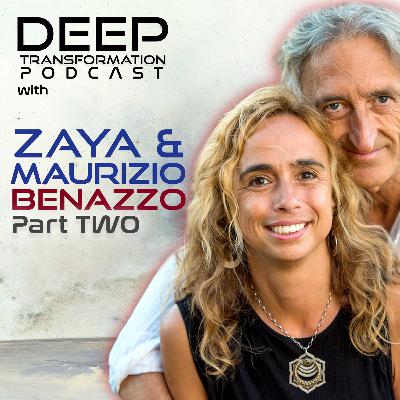
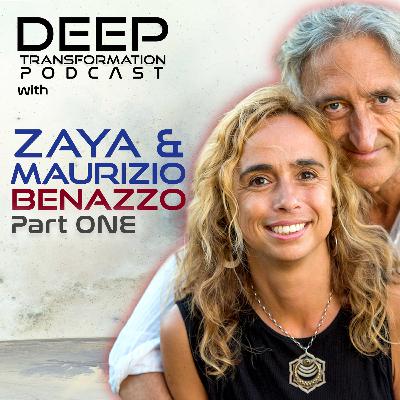

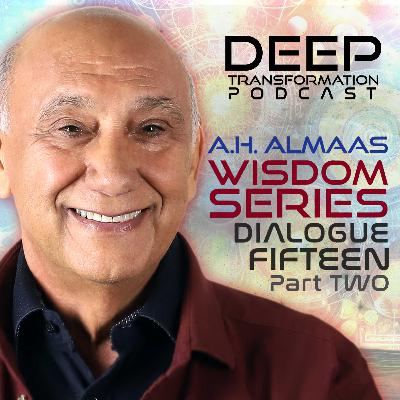
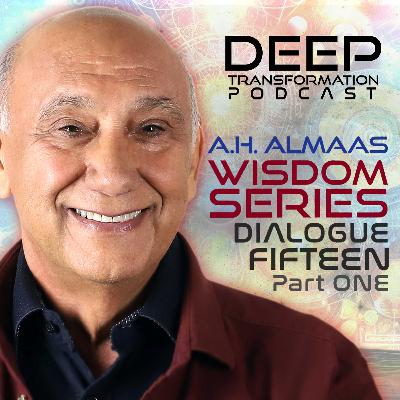
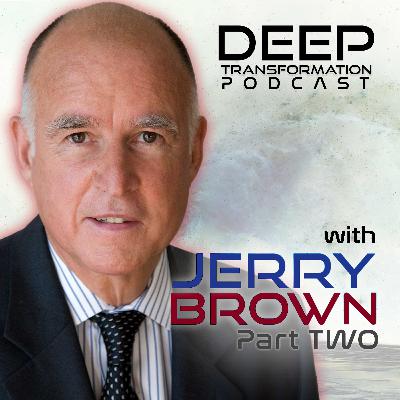
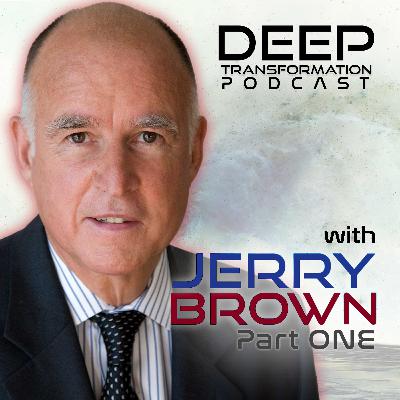

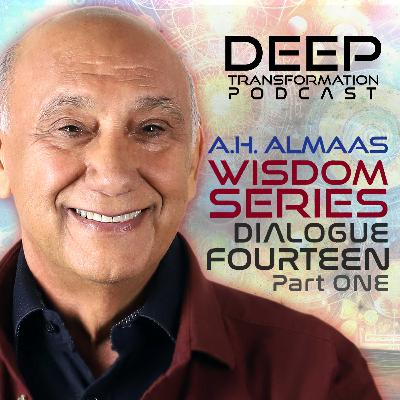
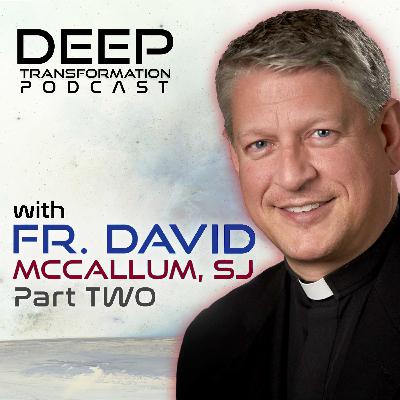
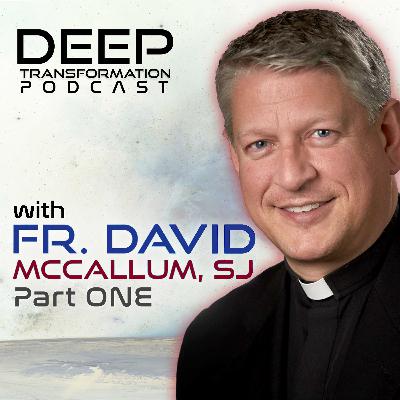
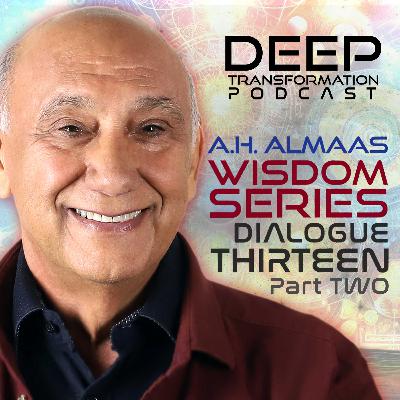



Laurel Parnell's exploration of EMDR therapy in "The Remarkable Transformative Power of EMDR Therapy" highlights its revolutionary impact on trauma treatment. This insightful discussion underscores how EMDR can facilitate profound personal transformation and open gateways to transpersonal experiences. It’s a compelling read for anyone interested in innovative therapeutic approaches and their potential for deep healing. Parnell’s work offers valuable perspectives on the integration of EMDR into transformative therapy. https://taylorhicks.ning.com/forum/topics/expert-sewer-cleaning-in-wayne-nj
Brendan Graham Dempsey's "Part 1" offers an insightful exploration of cultural evolution and the emerging stage of metamodernism. His analysis delves into the factors driving cultural shifts and the transition from postmodernism to a more nuanced, metamodern perspective. This work provides a thought-provoking framework for understanding how societies adapt and transform. Dempsey’s approach sheds light on the complexities of cultural dynamics and the future of philosophical and artistic movements. http://practicewithease.wikidot.com/
Democracy in Decline? Making Sense of the Supreme" likely explores critical discussions and analyses on the state of democracy and its challenges. This topic is crucial in understanding current political landscapes and societal trends. It prompts reflection on the role of institutions like the Supreme Court in shaping democratic principles and governance. Engaging with such discussions fosters awareness and critical thinking about the complexities of democratic processes and their implications for societies globally. https://medium.com/@sotat36546/can-you-provide-insights-into-the-most-common-causes-of-sewer-issues-in-ridgewood-nj-and-the-best-bcaed63bae46
This dialogue continues to illuminate the principles of the Diamond Approach, emphasizing self-discovery and inner transformation. Almaas' exploration of consciousness and the human experience captivates listeners, fostering deeper understanding and mindfulness. It serves as a valuable resource for those seeking spiritual wisdom and enlightenment on their journey of self-realization. Engage with this series to explore profound insights into the nature of existence and personal evolution. https://medium.com/@plumberssuper/experience-expert-hvac-service-in-hawthorne-nj-with-super-service-plumbers-heating-and-air-2bd81d2259a7
Fischler explores the current state of American democracy. He delves into the implications of recent Supreme Court decisions, the impact of the Trump trials, and the growing concerns over public morality. This thought-provoking analysis offers a comprehensive look at the challenges facing democratic institutions today. Engage with Fischler's insights to better understand the complexities and potential paths forward for preserving democratic values. https://atlanticheatingcooling.over-blog.com/2024/02/your-comfort-our-priority-premier-air-conditioning-services-in-clifton-nj.html
Finley's insights offer profound perspectives on navigating healing, suffering, and trauma with a spiritual lens. Through sacred psychotherapy, individuals can explore the depths of their experiences and find solace and transformation amidst life's challenges. This conversation provides invaluable wisdom for those seeking holistic approaches to mental and emotional well-being. https://hetmyershimron42.edublogs.org/2024/04/02/sustainable-empowerment-accessible-online-therapy-services-in-london/